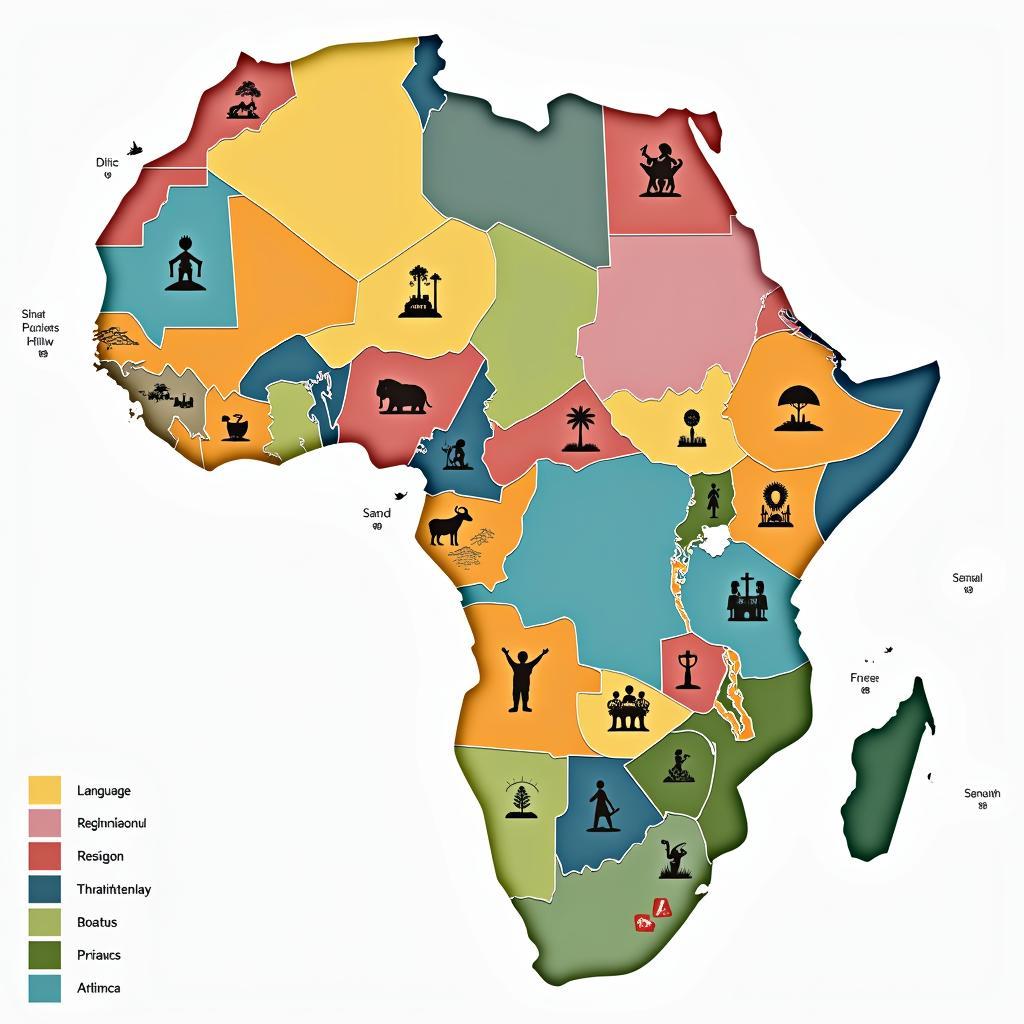Strengthening African Communities: The Power of Public Health Coalitions
African Communities Public Health Coalition initiatives are vital for addressing the complex health challenges facing the continent. These coalitions bring together diverse stakeholders, fostering collaboration and resource sharing to improve health outcomes and strengthen community resilience. They are crucial in tackling issues ranging from infectious diseases to chronic illnesses and promoting overall well-being.
The Importance of African Communities Public Health Coalitions
African communities face numerous health challenges, including limited access to healthcare, inadequate infrastructure, and the burden of infectious and chronic diseases. Public health coalitions offer a strategic approach to addressing these issues by fostering collaboration, sharing resources, and advocating for policy changes. By working together, these coalitions can amplify their impact and achieve sustainable improvements in public health. These collaborations often involve government agencies, NGOs, community leaders, healthcare professionals, and academic institutions, ensuring a multi-faceted approach to health issues.
One key benefit of these coalitions is their ability to leverage local knowledge and expertise. Community members are often best positioned to understand the specific health challenges facing their region and can offer valuable insights into culturally appropriate solutions. This participatory approach empowers communities to take ownership of their health and ensures that interventions are tailored to their specific needs. Furthermore, public health coalitions play a critical role in advocating for policy changes that prioritize health at the local, national, and international levels.
Dr. Amina Hassan, Director of the East African Public Health Institute, emphasizes this point: “Community-led initiatives are the cornerstone of effective public health interventions. They bridge the gap between policy and practice, ensuring that programs are relevant and sustainable.”
How African Communities Public Health Coalitions Function
African communities public health coalitions typically operate through a structured framework that involves several key steps. These steps include needs assessments, strategic planning, implementation, monitoring, and evaluation. The initial needs assessment involves gathering data on the specific health challenges facing the community. This information is then used to develop a strategic plan that outlines the goals, objectives, and activities of the coalition. The implementation phase involves putting the plan into action, while monitoring and evaluation ensure that the coalition is on track to achieve its goals and make necessary adjustments.
These coalitions recognize that health is not merely the absence of disease but a state of complete physical, mental, and social well-being. Therefore, they address a broad range of health determinants, including access to clean water and sanitation, nutrition, education, and economic empowerment. By adopting a holistic approach, these coalitions can achieve sustainable improvements in the overall health and well-being of communities.
What are the key components of a successful public health coalition? Effective communication, shared decision-making, and mutual respect among coalition members are crucial. Regular meetings, clear communication channels, and a shared understanding of the coalition’s goals are essential for maintaining momentum and achieving collective impact.
Challenges and Opportunities for African Communities Public Health Coalitions
Despite the significant contributions of these coalitions, they also face various challenges. These include limited funding, logistical constraints, and the need for capacity building. Securing sustainable funding is often a major hurdle, as public health initiatives frequently compete for limited resources. Logistical challenges, such as transportation and access to remote areas, can also hinder the effectiveness of interventions. Furthermore, ongoing capacity building is essential to equip coalition members with the skills and knowledge needed to implement effective public health programs.
However, there are also significant opportunities for growth and development. Technological advancements, such as mobile health and telemedicine, offer new possibilities for reaching underserved communities and improving healthcare delivery. Increased awareness of the importance of public health is also creating a more favorable environment for advocacy and resource mobilization. By capitalizing on these opportunities, African communities public health coalitions can further strengthen their impact and contribute to a healthier future for the continent.
Professor Kofi Annan, a renowned public health expert, observes, “Investing in public health is not just a moral imperative, it is also a smart investment in human capital and economic development.”
Conclusion
African communities public health coalition initiatives play a crucial role in addressing the complex health challenges facing the continent. By fostering collaboration, sharing resources, and advocating for policy changes, these coalitions are making significant strides in improving health outcomes and building healthier communities. While challenges remain, the opportunities for growth and development are immense. Continued investment in these vital initiatives is essential for achieving sustainable progress towards a healthier and more prosperous future for Africa.
FAQ
- What is an African communities public health coalition? A collaborative partnership of diverse stakeholders working together to improve community health.
- Why are these coalitions important? They address complex health challenges through collaborative action and resource sharing.
- How do these coalitions function? Through needs assessments, strategic planning, implementation, monitoring, and evaluation.
- What are some challenges faced by these coalitions? Limited funding, logistical constraints, and the need for capacity building.
- What are some opportunities for these coalitions? Technological advancements, increased awareness of public health, and advocacy.
African American Leader Organization in Civil Right offers valuable insights into community organizing and advocacy.
Common Situations and Questions
- Situation: A community experiencing a high rate of malaria infections. Question: How can a public health coalition help address this issue?
- Situation: Limited access to clean water in a rural community. Question: How can a coalition advocate for improved water infrastructure?
- Situation: Lack of awareness about HIV/AIDS prevention. Question: How can a coalition develop and implement effective health education programs?
Further Exploration
Explore more articles on our website related to community health, disease prevention, and healthcare access in Africa.
Call to Action
For support, contact us at +255768904061, kaka.mag@gmail.com, or visit us at Mbarali DC Mawindi, Kangaga, Tanzania. We have a 24/7 customer support team.
